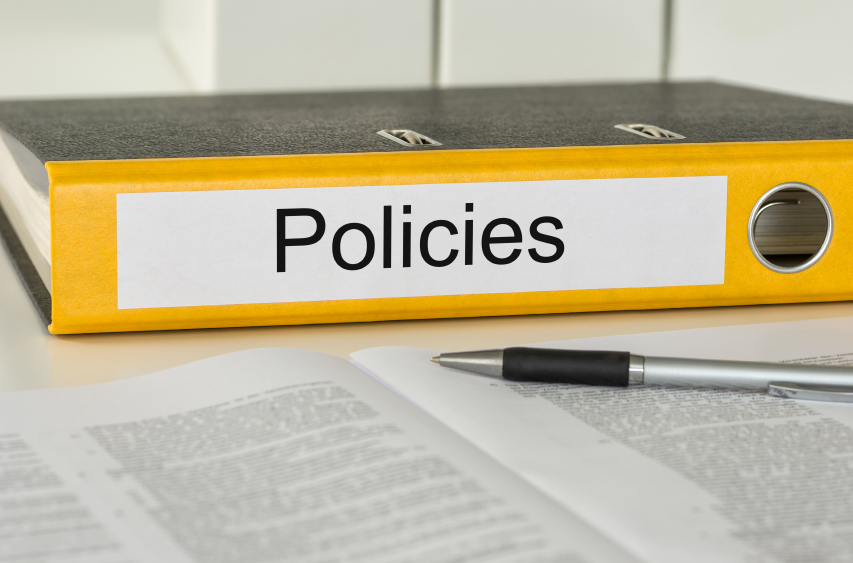 |
Weitzman, a partner with the Proskauer law firm, offered his tips at the SHRM Annual Conference and Exposition in Las Vegas.
Technology Policies
Weitzman suggests that your technology policies include:
- Social networking sites
- Blogging
- Company equipment rules, e.g., use for business purpose only
- No expectation of privacy for employer property
“BYOD” (Bring Your Own Device) Policies
Your BYOD policy may include:
- Inspection of devices at termination (to be sure no proprietary information is on them).
- Devices can be wiped (for example, if lost or stolen).
- Required notifications if devices are lost or stolen.
- Employees must use strong passwords.
- Telephone call monitoring warning if you may monitor.
- Tape recording warning if you may tape record.
In addition, says Weitzman:
- Get a signed acknowledgement form.
- Be aware of wage and hour liability issues when nonexempt employees use phones off hours.
- Be aware that telecommuting may bring similar challenges.
Important: Antiharassment policies are applicable to all forms of communication—e-mail, voice mail, Blackberry devices and PDAs, Internet, instant messaging, chat rooms, public Internet posting, etc., says Weitzman.
Cell Phone Rules for Drivers
Weitzman advocates a number of rules for employees who drive:
- Make sure that employees know the features available on their cell phone and how to use them.
- Require the use of hands-free devices, memory, one-button and voice-activated dialing.
- Check that the cell phone is within easy reach of the driver.
- Advise employees to inform anyone with whom they are speaking that they are driving while on the phone.
- Advise employees to avoid using cell phones during hazardous weather and traffic conditions.
- Ensure that employees do not look up phone numbers or take notes while they are driving.
- Advise employees to make calls while they are not moving or pulling into traffic.
- Advise employees to avoid emotional or stressful discussions while driving.
- And, NO TEXTING!!!
Special Issue: Camera Phones
Today, most phones have a camera, and that brings more problems into the workplace.
You cannot have a total ban that would include protected concerted activity, Weitzman says. However, you can prohibit picture taking during working time and in nonpublic working areas (to protect confidential information and trade secrets), and restrooms and locker rooms (to protect privacy).
Cross-Dressing in the Workplace
Employers are free to define business attire differently for men and women, Weitzman says, and some courts have held that a male employee dismissed for wearing female attire cannot successfully bring a claim of sex discrimination.
However, cross-dressing may be protected under certain state and local anti-discrimination laws.
Drug and Alcohol Testing in the Workplace
There are important benefits of drug-free workplace policies, says Weitzman, including:
- Decreased absenteeism, turnover, downtime, accidents, and thefts; and
- Increased productivity and overall employee morale.
A drug and alcohol testing policy should be part of your company’s drug-free workplace policy, Weitzman says, and you should include a detailed description of the drug testing procedures.
Generally, employers may test applicants and employees in the following circumstances (subject to state and local laws), Weitzman says.
- During a yearly physical
- Before transfers or promotions
- Before being placed in positions involving security, safety, or money
- After an accident
- Where the individual used drugs in the past
- After treatment
- Based on reasonable suspicion
- On a random basis
State and Local Legal Requirements
Don’t forget that there may be state and local legal requirements that should be incorporated into your handbook and be communicated to employees. Weitzman recommends looking for these topics in particular:
- Workplace smoking policies
- E-cigarettes
- Voting policies
- Jury duty policies
- Blood, bone marrow, and/or organ donation leave
- Protected off-duty legal activity
- Domestic violence leave
- Breastfeeding accommodations
In tomorrow’s Advisor, we will present more from Weitzman, including policy tips for guns in the workplace.
